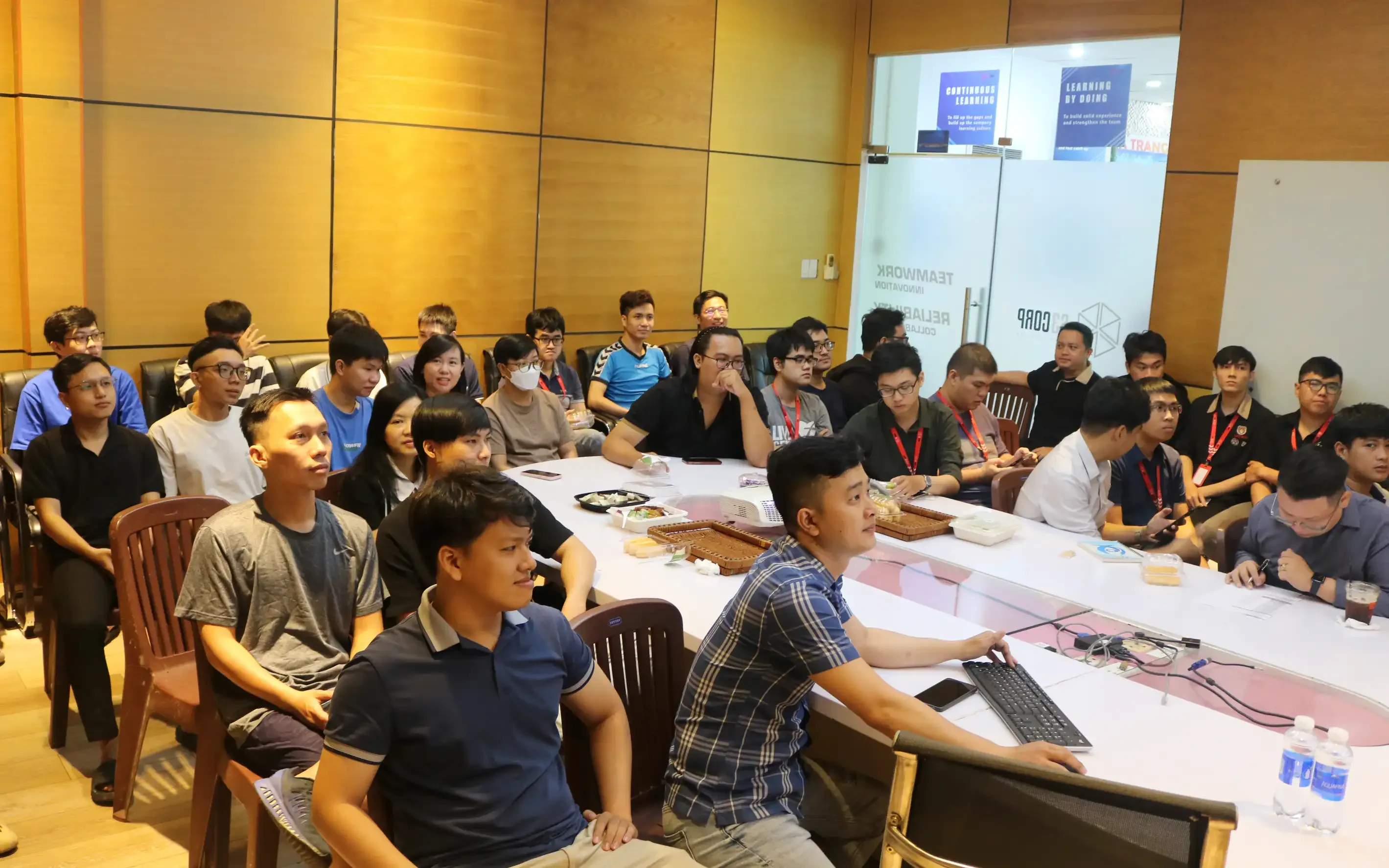Becoming a Senior Developer

News
Becoming a Senior Developer: Internal Training at S3Corp.
On Friday, 4 July 2025, S3Corp. conducted an internal knowledge-sharing session titled “Becoming a Senior Developer.” The session encouraged open discussion and shared guidance on how developers can progress in their careers. The session focused on two core topics: how to become a senior developer and which soft skills are essential for long-term success in software engineering.
05 Jul 2025
On Friday, 4 July 2025, S3Corp. conducted an internal knowledge-sharing session titled “Becoming a Senior Developer.” The session encouraged open discussion and shared guidance on how developers can progress in their careers. The session focused on two core topics: how to become a senior developer and which soft skills are essentialfor long-term success in software engineering.
 Career Growth in
Software Development
Career Growth in
Software Development
The transition from junior to senior developer is not defined by years of experience alone. During the session, speakers clarified that this growth is marked by technical maturity, independence, and the ability to deliver consistent value in team settings.
Participants discussed that a senior developer must understand project goals clearly and align development work with those goals. Writing clean, scalable, and maintainable code is expected. However, what distinguishes a senior developer is the ability to make architectural decisions, guide less-experienced teammates, and foresee the long-term implications of current choices.
The session also highlighted that seniors do not just execute tasks but take ownership of systems and features. They manage tasks efficiently without needing step-by-step instructions. They are expected to balance speed and accuracy, making sure deliverables are not just fast but also aligned with quality standards.
Decision-Making and Problem-Solving
Senior developers are expected to contribute to decisions beyond the codebase. The session explained that being senior includes evaluating trade-offs in design decisions, understanding how their choices affect user experience, system performance, and project timelines.
Participants explored scenarios where making the right trade-off leads to sustainable outcomes. For example, choosing between a fast but rigid solution and a slower but flexible one. Seniors often need to make these decisions in fast-paced project environments.
Problem-solving was another important area discussed. Senior developers often solve not only technical issues but also communication gaps within a team or misalignments between product and engineering. Their solutions are expected to be well-reasoned, communicated clearly, and aligned with the team’s shared goals.
Mentorship and Leadership
The session emphasized that seniority in software development includes a leadership mindset. This doesn’t always mean managing people but does mean setting an example. Senior developers are role models for engineering practices, work ethic, and collaboration.
They are expected to review code constructively, offer help to peers, and foster a supportive environment. Mentorship includes guiding others to find answers instead of solving problems for them. By teaching others, seniors contribute to the overall growth of the team.
Leadership also includes owning mistakes and learning from them. The discussion highlighted that developers who openly reflect on challenges and apply lessons show maturity and accountability.
Soft Skills That Matter
Technical ability alone does not define a senior developer. The training addressed how soft skills can make or break a developer’s growth trajectory. Communication was the first discussed area. Seniors must explain technical decisions to both technical and non-technical audiences. Clear writing in documentation, task updates, and issue tracking are daily requirements.
Next was teamwork. A senior developer must know how to give and receive feedback. Respectful dialogue during code reviews, effective collaboration in planning meetings, and being dependable in daily work were highlighted as essential behaviors.
Time management was also noted. Being able to estimate timelines, manage task priorities, and avoid overcommitting are skills every senior developer is expected to demonstrate.
Another point of discussion was adaptability. Projects evolve, client needs change, and technologies shift. Seniors who can embrace changes and help the team adjust become critical to project success.
The session concluded by reinforcing the value of continuous learning. The software industry changes rapidly. Staying relevant requires constant effort to improve and update skills. This applies to both technical and interpersonal areas.
Continuous Learning at S3Corp.
S3Corp. promotes a learning culture by organizing internal training sessions like this one. These sessions encourage peer learning and keep the team aligned with growth goals. Sharing knowledge across departments ensures that good practices are not isolated.
“Becoming a Senior Developer” or "Becoming a Software Project Manager" are part of a larger strategy at S3Corp. to support developer growth. By investing in shared learning, the company helps engineers prepare for broader responsibilities and long-term career progression.
Summary of the Session
The “Becoming a Senior Developer” session held on 4 July 2025 offered developers at S3Corp. practical insights into the expectations of senior roles. It explored how developers can grow through technical expertise, decision-making, mentorship, and strong soft skills.
By emphasizing continuous improvement and open knowledge-sharing, S3Corp. ensures that developers are equipped for each stage of their careers. The session reinforced that seniority is not only about coding but about contributing to the team’s success, guiding others, and consistently learning.



_1746790910898.webp&w=384&q=75)
_1746790956049.webp&w=384&q=75)
_1746790970871.webp&w=384&q=75)
